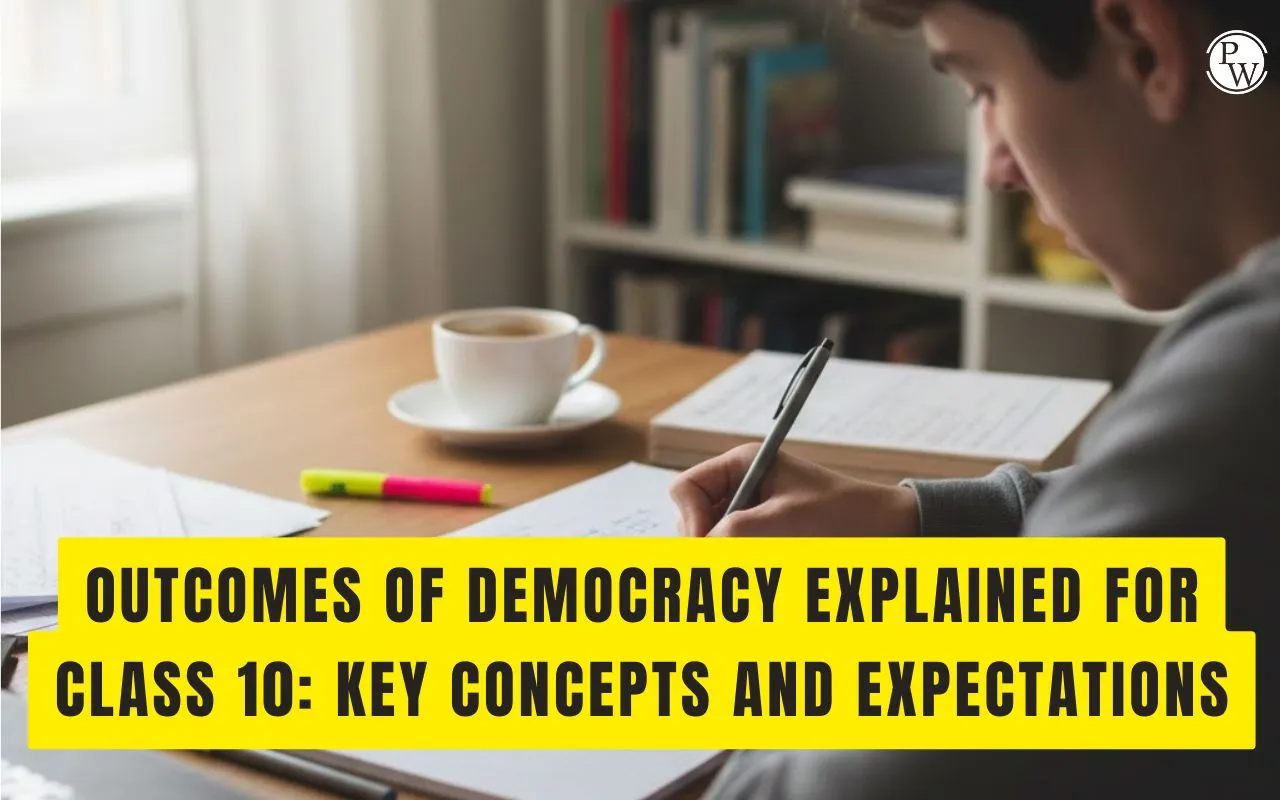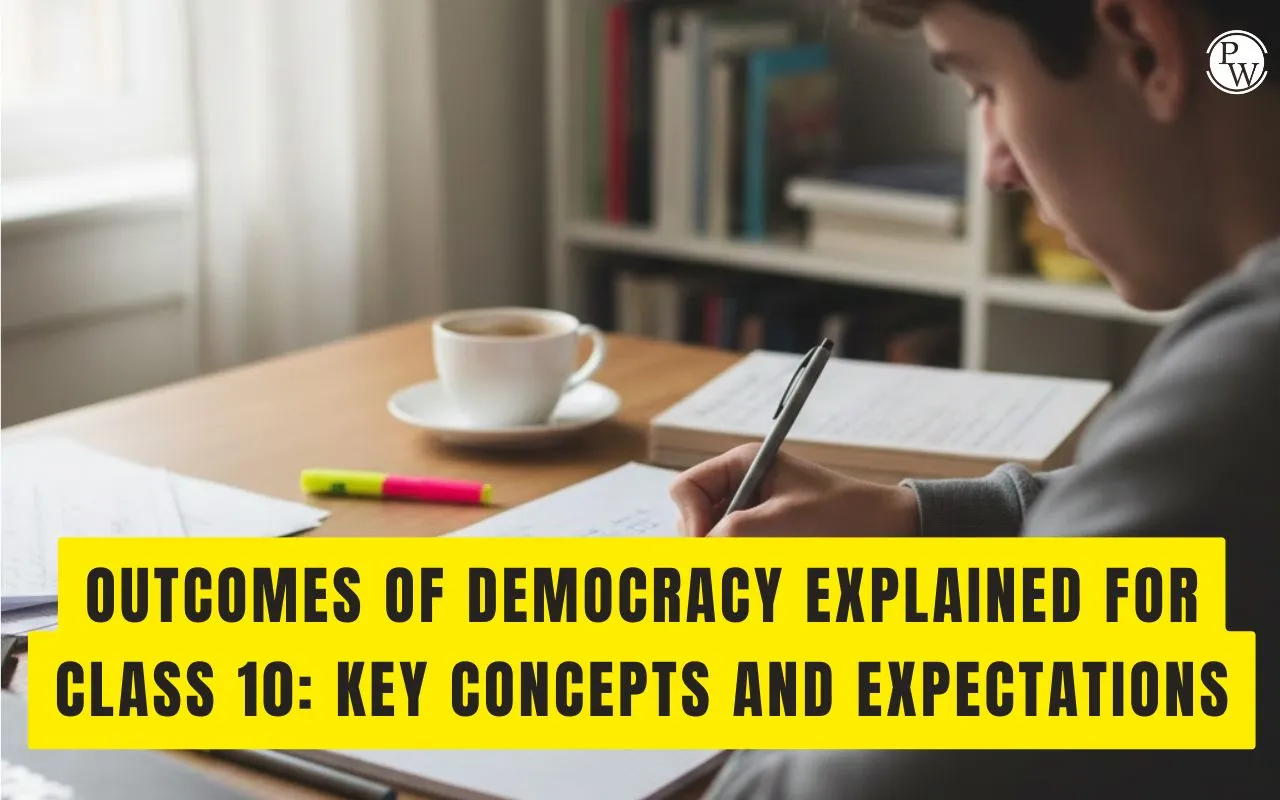

This chapter begins with a central question: Does democracy meet our expectations? Before answering this, it is necessary to understand what democracy actually does. At its core, democracy provides political equality — every individual is considered equal in political terms, every citizen has the same voting right, and every vote carries the same value.
Across many democratic countries, certain features are common: a constitution, elections, political parties, and guaranteed rights. However, what differs from one democracy to another is their social situation, economic condition, and cultural background. This chapter explores what democracy is expected to deliver and whether those expectations are fulfilled in practice.
Class 10 Civics: Outcomes of Democracy
This session, led by SST educator Ujjwala Punj, focuses on Class 10 Civics: Outcomes of Democracy, following the NCERT text line-by-line. The chapter appears short but feels confusing only because it is rarely approached with the intention to understand. Once the basic ideas become clear, the chapter becomes straightforward.
The term “outcomes” means results. The chapter explains what outcomes democracy produces, what it provides, and what it fails to provide. It begins with the fundamental question: What does democracy do? What outcomes can we reasonably expect? Does democracy actually achieve these outcomes in real life?
Students have already studied several aspects of democracy — power sharing, federalism, gender-religion-caste in politics, and political parties. Now the focus shifts to the overall performance of democracy.
The introduction of the NCERT text asks a set of general questions:
-
What does democracy do?
-
What outcomes can we expect from it?
-
Does it meet these expectations?
-
How do democratic governments perform in terms of governance quality, economic well-being, inequality, social differences, conflict, freedom, and dignity?
The chapter also examines whether democracy fulfils the purpose for which people chose it. Among various forms of government such as dictatorship or monarchy, people preferred democracy because they believed it is better than the others.
The reasons behind this belief include:
-
It promotes equality among citizens. Every person holds equal political status.
-
It enhances the dignity of individuals. Everyone is treated equally before the law.
-
It improves the quality of decision-making. Decisions follow procedures, debates, and discussions, making them more widely acceptable.
-
It provides methods to resolve conflicts. Large and diverse societies inevitably face conflicts, and democracy offers peaceful ways to address them.
-
It allows room to correct mistakes. If representatives fail, citizens can change them in the next election.
Although democracy looks perfect in principle, the real question is whether these outcomes appear in actual practice. A country calling itself democratic does not automatically become an ideal democracy. It becomes ideal only when principles match reality. Democracy merely creates the conditions for achieving these goals — citizens must use these conditions to improve the system.
The chapter is divided into parts. The first expectation from democracy is that it produces an accountable, responsive, and legitimate government. In a democratic setup, people choose representatives through voting. These representatives govern on behalf of citizens. Naturally, citizens expect these leaders to remain accountable and respond to public needs rather than ignore them after gaining power.
People demand answers because authority comes from the people themselves. Democratic representatives are expected to listen to citizens, address their needs, respond to their expectations, and work on solutions. Power should not make leaders forget why they were elected.
A common question also arises: Is a democratic government efficient and effective? This is another aspect the chapter examines further.
